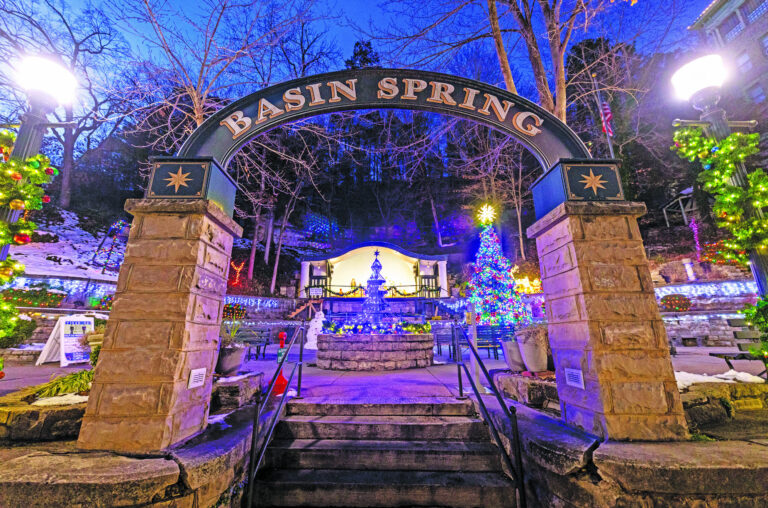Monthly meetings of the Eureka Springs City Advertising and Promotion Commission are routinely time-consumed with organizations giving their spiel as to why they should be awarded marketing funding support for a particular event.
New procedures will hopefully change that in 2026, CAPC members say.
During the commission’s monthly workshop held Wednesday, Aug. 13, commissioners spent more than 90 minutes discussing ways to streamline the application and process for funding support requests.
The first step, commissioners said, is limiting the window to when requests can be made to the CAPC to four times a year — February, May, August and November.
“So, there’s an adjustment … they’re going to need to know that the fourth Wednesday of February, the fourth Wednesday of May, the fourth Wednesday of August, the fourth Wednesday of November are the only meetings that funding requests will be remitted, and they have to be at least two months ahead of event start,” said Danyelle Harris, CAPC administrative manager, who has spearheaded ideas for revising the funding request system. “So, event organizers really need to pay attention to that. It’ll be an adjustment because they’re used to being able to just slip right in.”
Harris presented a revised application to the CAPC with more clarifying wording that answers common questions as well.
“The three of us have batted forms back and forth over the past several weeks, and we still have a draft. It’s not perfected,” Harris said of the document she revised along with CAPC director Mike Maloney and finance director Ty Reed. “ What we have done is tried to condense the wording, try to make it not as wordy, but still very clarifying on common questions and issues that are a pattern of missed steps or overlooked details of requirements.
“On the guidelines, that took us the longest and lengthiest to scrutinize and reword.”
Commissioners liked the idea of having funding requests only four times a year.
“That’s what I was hoping y’all would zero in on,” Harris said. “Here’s the major adjustment that the public would need to go ahead and make the adjustment planning for 2026, would be those activities or those events such as … the most commonly are the Mardi Gras, the Chocolate Fest, the Fiber Fest, that’s all in that January, February, March [timeframe]. But then even come April, Springtime in the Ozarks, the Out in Eureka, Steampunk — because those are in April — they need to go ahead and grab their applications and be prepared to present them to us … in November.
“Those February and March events need to be taken care of in November of 2025 so that they’re done. And then that April, the latest that they can get in is February. They can’t wait until March like had been.”
Commission chair Steve Holifield said he was concerned about a big portion of regular CAPC meetings being used to discuss funding requests.
“Usually, most of our meeting we have two or three or four or five funding requests and it takes up quite a bit of time,” Holifield said.
Harris then mentioned using the month’s CAPC workshop for groups to make their request presentation. The CAPC would then vote on the request at its regular meeting the fourth Wednesday of the month.
“In the past this is something that has come up, and what had been done kind of somewhat successfully is a workshop would be basically the venting, or if you will, sort of the presentation of the proposal or whatever and that way the commission could go ahead and kind of mull it over and say: ‘Well, OK this looks good,’ so when the official meeting comes, it takes about a minute … yes or no,” Maloney said.
The applications for requests will also be on the CAPC website, visiteurekasprings. com, Harris said.
“That is something that wasn’t really specified or welcomed … prior,” she said.
The CAPC also talked about guidelines for a request and making sure that organizations are better aware of postevent summary reports to supply information needed to justify the funding.
‘LEGACY’ EVENTS
The CAPC also spent time at the workshop discussing “Legacy Events,” or events that are a staple to the community and annually bring in a large number of tourists.
“Considering those [events] that have been established, recurring, expected, anticipated events that have to come back annually to ask for, can we go ahead and have a standard of classification that this now is considered a legacy event, where we already have a line item in our budget for legacy event funding, knowing what they are, going into the budget design, and not require them to have to fill out the application and come back annually?” Harris said. “We already know them. They’re there. And then for some reason, if that event doesn’t happen that year, for whatever various reasons may happen we’re not out the money. The money just doesn’t get spent.”
Commissioners Kolin Paulk and Heather Wilson liked the idea, but still felt a paper trail or annual agreement with such an event needed to happen.
“I do think we should have something in writing,” Wilson said.
Harris said the CAPC’s initial definition of a legacy event is “a repeated event leaving behind a lasting positive impact on the community that defines legacy.”
Some current events may have a goal of becoming a legacy event, Harris added.
“It’s kind of a good idea, too, because we don’t want to get to the end of the year and go: ‘Oh, no, we ran out of money, we don’t have even money for these legacy events anymore,’ ” Holifield said. “It’s coming up to the end of year so having those in the budget set out already on the line item says we don’t have to worry about that part of it….”
The amount of time an event has been established to be considered a legacy event is something to be determined, commissioners agreed.

